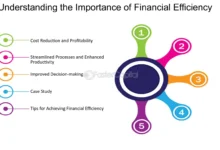Affiliate Marketing: Unlocking The Power Of Partnership, It’s Benefits and Challenges.

Affiliate Marketing: Unlocking the Power of Partnership.

In the dynamic realm of online commerce, businesses are continually seeking innovative strategies to expand their reach and boost sales. One such strategy that has gained immense popularity is affiliate marketing. This digital marketing model leverages the power of partnerships to drive revenue, benefiting both businesses and individuals alike.
Understanding Affiliate Marketing
Affiliate marketing is a performance-based marketing strategy where businesses reward affiliates for driving traffic or sales to the company’s products or services. Affiliates, in turn, earn a commission for each successful referral or sale generated through their marketing efforts. It’s a symbiotic relationship, aligning the interests of merchants and marketers.
How Affiliate Marketing Works

- Partnership Formation: Merchants create affiliate programs, offering commissions to affiliates for promoting their products.
- Affiliate Promotion: Affiliates, often content creators or influencers, promote the merchant’s products through various channels like websites, social media, or email marketing.
- Tracking and Analytics: Unique tracking links or codes are assigned to each affiliate, allowing merchants to trace the source of traffic or sales generated by a specific affiliate.
- Commission Structure: Affiliates receive commissions based on predefined actions, such as clicks, leads, or actual sales. This performance-based model ensures that affiliates are rewarded for their effectiveness.
Advantages for Merchants
- Cost-Effective Marketing: Businesses only pay for actual sales or desired actions, making it a cost-effective advertising model.
- Extended Reach: Affiliate marketers bring diverse audiences, expanding the reach of products to new demographics and niches.
- Performance Metrics: Detailed analytics help merchants evaluate the success of campaigns, enabling data-driven decision-making.
- Enhanced SEO: Quality affiliate content and backlinks can positively impact a merchant’s search engine ranking.
Benefits for Affiliates

- Passive Income: Affiliates can earn passive income by promoting products without the need for inventory, customer service, or order fulfillment.
- Diverse Revenue Streams: Affiliates can work with multiple merchants, diversifying their income sources and reducing dependency on a single partner.
- Low Entry Barrier: Affiliate marketing is accessible to beginners, requiring minimal upfront investment. Anyone with a strong online presence can become an affiliate.
- Flexibility: Affiliates have the flexibility to choose the products or services they want to promote, aligning with their interests and audience preferences.
Challenges and Considerations
- Dependency on Merchant Policies: Affiliates are subject to the policies and changes made by the merchants they promote, affecting their revenue streams.
- Trust and Credibility: Maintaining trust with the audience is crucial. Affiliates must ensure they promote products or services they genuinely believe in to preserve credibility.
- Saturation in Niches: Some niches may become oversaturated with affiliates, making it challenging to stand out and generate significant revenue.
The Future of Affiliate Marketing

As technology continues to evolve, so does the landscape of affiliate marketing. Emerging trends suggest a more sophisticated and personalized approach, with AI-driven tools for tracking, analytics, and targeted marketing. Additionally, the rise of influencer marketing has further blurred the lines between traditional affiliates and influencers, creating new opportunities for collaboration.
Tips for Success in Affiliate Marketing
- Choose Relevant Products: Align with products or services that resonate with your audience to enhance credibility.
- Build Trust: Honest and transparent communication builds trust with your audience, leading to long-term success.
- Diversify Strategies: Explore various promotional strategies, such as content marketing, social media, or email campaigns, to maximize your reach.
- Stay Informed: Keep abreast of industry trends, algorithm changes, and new technologies to adapt your strategies accordingly.
Conclusion
Affiliate marketing has evolved into a powerful symbiotic relationship between merchants and marketers, fostering a mutually beneficial environment. As the digital landscape continues to transform, affiliate marketing remains a versatilehttps://www.bigcommerce.com/articles/ecommerce/affiliate-marketing/ and effective strategy for businesses and individuals alike. By understanding the dynamics, embracing innovation, and fostering trust, affiliates can unlock the true potential of this dynamic marketing model.













